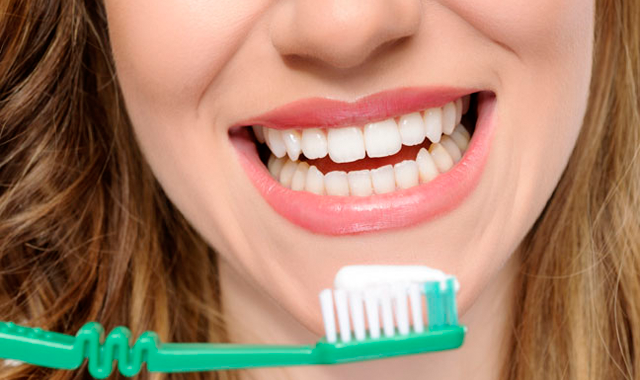5 ways to get your patients to brush their teeth
Getting your patients to brush on a consistent basis can be a challenge, but these tips can help your patients realize the importance of good oral hygiene.

When it comes to motivating your patients to brush their teeth, there are never enough ideas to try. “Really, when it comes down to it, we have to be a mini psychologist,” says Tina Clarke RDH, BSDH, MED, a clinical hygienist and dental hygiene teacher at Oregon Technical School. “We have to figure out what will motivate our patients to make healthy lifestyle changes.”
Talking about eating healthy snacks, brushing between meals and avoiding foods that stain teeth is all part of discussing good hygiene. “I encourage all oral health care providers to continue learning about motivational interviewing and intervention with their patients,” Clarke says.
Related article: 6 things to say to get your patients to clean in between their teeth
Here are five tips that may help you to motivate your patients to brush on a regular basis.
1. Use the intraoral camera
Using an intraoral camera to show the patient what is actually happening in his or her mouth can be an eye-opening experience. “I often hear, ‘Gross! That is what's in my mouth?’” Clarke says.

Removing a small amount of biofilm and showing it to your patient can be helpful, too.
2. Lead by example
“We often notice patients miss brushing areas along the gum lines along the cheek sides of the teeth,” says Rudi As-Sanie, DDS, who practices in Dublin, Ohio. Demonstrating how to properly brush hard-to-reach spots can help patients improve their oral hygiene habits.
“We suggest to patients to have ‘soft cheeks and lips’ to make sure the toothbrush has enough room to get beyond the lips and cheeks,” As-Sanie says. “For the back teeth, we tell patients to close down about halfway. Patients might think they should open wide to get all those hard-to-reach areas, but a slightly closed soft mouth is the key.”
Continue to page two to read more...
3. Encourage the use of an electric toothbrush
There’s no question that brushing and flossing your teeth is a hygiene chore akin to showering and shaving. And there are times when all of us don’t feel like doing those things. The task involves a bit of work on your patient’s part, but using an electric toothbrush can put some joy, fun and ease into the task. What’s more, an electric toothbrush can reduce some of the chore-like feel of teeth brushing and add an element of fun that makes patients look forward to getting the clean, fresh-mouth feel only an electric brush can offer. Plus, for some patients, brushing with an electric brush is downright more enjoyable. Some patients get excited to turn on their whirring brush and accomplish a task that’s good for their health. Discuss using an electric toothbrush with your patients and offer advice about cost-efficient models.
4. Make it about health
Remind your patients that medical conditions show up in their mouths. Sound bites like that are powerful, says Anastasia Turchetta, RDH, a speaker and author in Buffalo, New York. Inflammation and chronic active bacterial infections are topics Turchetta likes to bring up. “Inflammation is linked to most medical conditions and your current state of oral health,” she says.
More from the author: 5 surprising things your patients don't know about their dental visit
Placing greater emphasis on the fact that brushing and flossing aren’t necessarily about keeping bad breath at bay but could also be responsible for staving off heart disease or diabetes ups the level of importance for patients.
5. Tell them what kind of job they’re doing
Sure, you have to be tactful since no one want to be admonished at the dentist’s office, but patients do find it motivating to know how well they’re doing. Start with the praise and follow up with the advice. Sometimes dental professionals only think about educating their young patients, but adults need the extra information, too. Sharing information like “You’re doing a great job,” or “You might be missing this spot here,” is usually very helpful in getting patients to brush - and brush better.
“When I’m talking with people, my biggest thing is to use normal terms,” Clarke says. “We get caught up in using our lingo sometimes.”
Simply sharing with patients what’s looking good, where they might need to work more, offering a tip on getting the floss between two hard-to-reach back teeth - all of those conversations are fodder for when you have a live body in your chair. After all, remember how motivating it was when your math teacher told you how great your skills at multiplication were, or your piano teacher praised your concerto? Don’t be shy to tell your patients that their dental hygiene skills are on par with a virtuoso.
Motivating patients to brush takes just a little time and forethought, and your patients will reap the oral hygiene rewards.